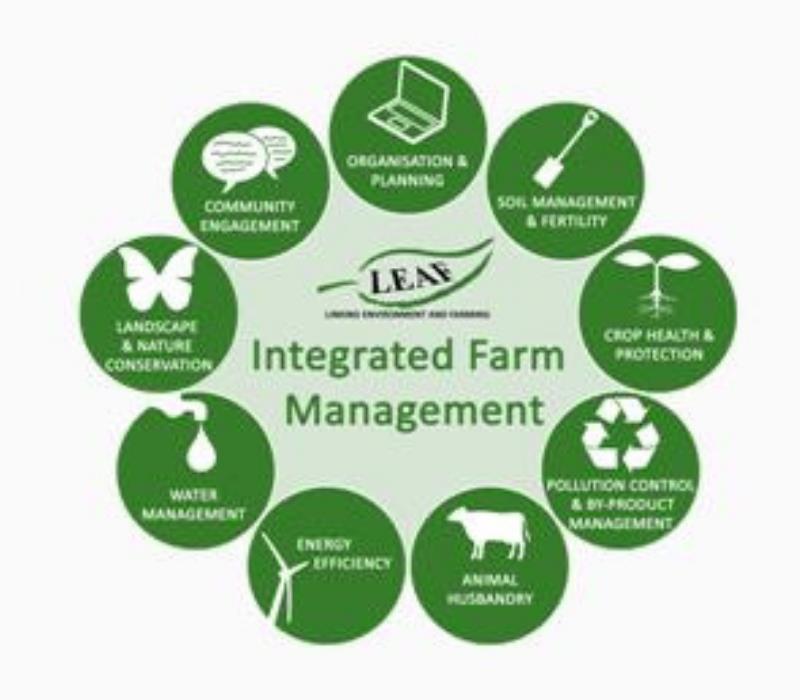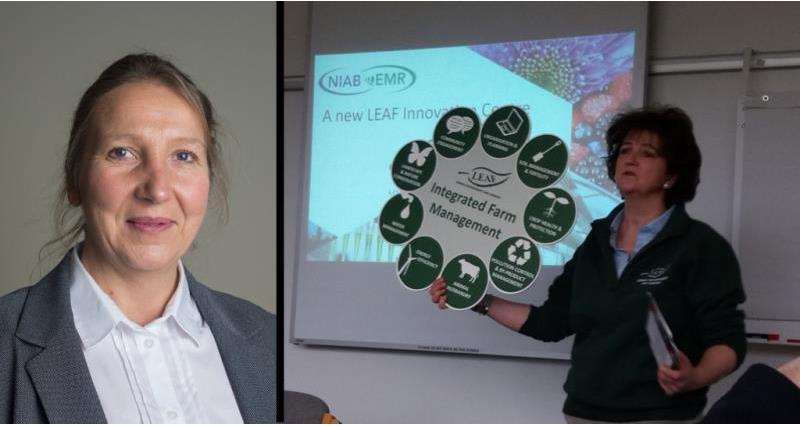At the end of September, I attended a two-day training course on Integrated Farm Management (IFM) run by LEAF (Linking Environment and Farming ). The reason for attending this course was because IFM and specifically IPM (Integrated Pest Management), is rising up the agenda as a means to control pests, weeds and diseases. There is also a political element to this; Government, and others, sometimes suggest farmers are not doing enough in terms of IPM. Also, I wanted to get an update from LEAF on how their members engage with IPM and find out if we, the NFU, could be doing more in this area. We already manage the Voluntary Initiative’s IPM Plan which helps operators demonstrate how operators consider the principles of IPM before using professional pesticides.
The Sustainable Use Directive (Directive 2009/128/EC) aims to achieve a sustainable use of pesticides in the EU by reducing the risks and impacts of pesticide use on human health and the environment by promoting the use of IPM and alternative approaches or techniques, such as non-chemical alternatives to pesticides.
LEAF Demonstration Farms are working, commercial farms practising IFM. LEAF Demonstration Farmers communicate, discuss and demonstrate IFM best practice amongst other farmers and also play a critical role in promoting sustainable farming to wider groups such as politicians, industry and students.
The LEAF IFM wheel:

LEAF’s IFM is made up of nine sections, which together address the entire farm business. Each of the nine sections is interrelated and an understanding of how they work together is essential for the effective implementation of IFM. Several NFU members also run LEAF Demonstration Farms.
Instead of completing an IPM plan, LEAF members carry out a self-assessment by completing the LEAF Sustainable Farming Review. This whole farm management tool identifies strengths and weaknesses as well as helping farmers set targets for action. Rather than being a box ticking exercise, the farmer “takes ownership” of IFM/IPM and decides how and where he wants to make improvements to his business.
LEAF also runs the LEAF Marque assurance scheme, whereby farm businesses have to meet rigorous standards of sustainable farming practice. All LEAF Marque certified businesses are independently verified against the robust LEAF Marque Standard.
In an independent study carried out last year by the Countryside and Community Research Institute (CCRI) 36% of businesses surveyed reported extra income as a result of being LEAF Marque certified; 97% secured access to new market opportunities and 23% reported receiving premiums for their products. Improvements were seen across the whole business because of the holistic approach of IFM. Soil and water management are considered, as well as energy efficiency and conservation. The LEAF Marque standard, which is underpinned by IFM, also extends to community engagement, something we must all consider in order to improve our outreach to consumers.
Looking at the VI IPM plan, it could be improved by adopting some of the principles embedded within LEAF. We will be reviewing the VI IPM plan in early 2019 and by showing tangible benefits to farm businesses, we hope we will encourage uptake and engagement, which would demonstrate how embracing all the principles of IPM can result in numerous benefits for NFU members.
